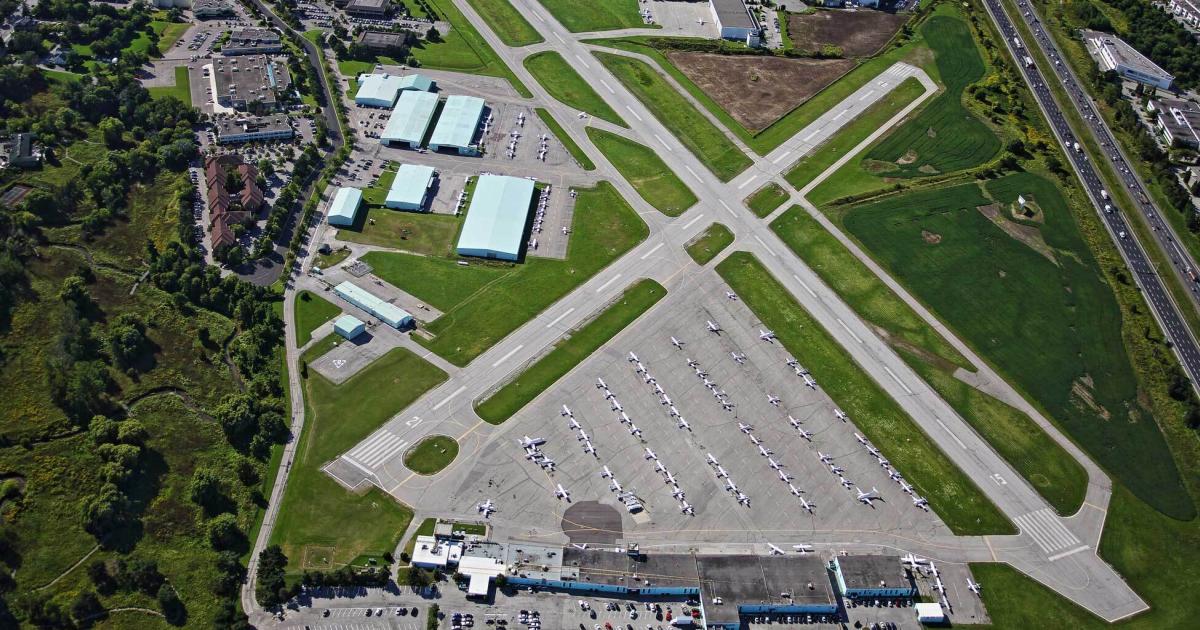The Future of Ontario’s Airports Is in Crisis Without Immediate Action
This news released was originally published by AMCO on January 23, 2024

The Airport Management Council of Ontario (AMCO) underscores concern that airports are in crisis in Ontario. A recent trend of municipalities opting to sell their small airports and aerodromes potentially leads to their redevelopment for other land use purposes and their ultimate closure. Closure of such infrastructure has repercussions on the delivery of public services and opportunities provided by general aviation (GA). The decision to move in this direction is fundamentally linked to the fact an organized provincial funding initiative specifically targeting small airports and aerodromes is nonexistent in Ontario.
“Municipal infrastructure does not make money. Roads, sewers, bridges, culverts, pipes, and airports should be all considered critical infrastructure, necessary to a thriving community,” said Chris Wood, President of AMCO and the Director of the Region of Waterloo International Airport. “Municipalities should not view airports as profit centres, and understand them for what they are, critical municipal infrastructure and economic engines. The ability for Ornge to access an airport on a stormy winter night to airlift someone and potentially save their life is an example of the importance of airports. Chances are the pilot who whisks us away to sunny destinations learned to fly at one of these airports. Let’s keep them open in Ontario!”
AMCO believes that there is a disconnect between the public perception of small airports and aerodromes in terms of their social value to communities. Small airports and aerodromes are infrastructure that should be considered as municipal assets rather than a drain on coffers. As infrastructure, it is prudent to invest in their upkeep and development so that they remain available to assist local citizens and facilitate public services for generations. Mark Van Berkel, President and CEO of the Canadian Owners and Pilots Association (COPA), agrees with this assessment, noting, “Airports are necessary infrastructure. General aviation serves the public interest and GA cannot exist without airports.”
For instance, in terms of public services, local airports are central to health care connectivity when medical evacuations (medevacs) are key to patients receiving critical and/or life-saving care. They are essential operational points in public safety emergencies encompassing search and rescue, policing, and fire suppression. Local airports facilitate maintenance and monitoring of hydroelectric infrastructure as well as assist ministries, such as National Resources and Forestry, with various aspects of their programming. There are numerous First Nations communities in northern Ontario that are reliant on air transportation for accessibility and the provision of necessities. A real risk exists that the level of services afforded to Ontarians through established airport infrastructure across the province will be lost as numerous airports are in danger of closure.
AMCO acknowledges that Ontario is in a robust period of growth and requires similar levels of development, particularly in housing, to expedite the trajectory of Ontario’s rise as a top North American market to conduct business. Nonetheless, incentives to boost the number of housing starts and the difficulties that municipalities face in funding services are a lethal combination for numerous small airports and aerodromes, as municipalities will side on cost-cutting measures, rather than an investment in infrastructure for the future. Established airports are now in competition with other forms of land use development at a pace that has not been witnessed before. In short, losing infrastructure like airports is detrimental to innovation and advanced skills development in Ontario.
